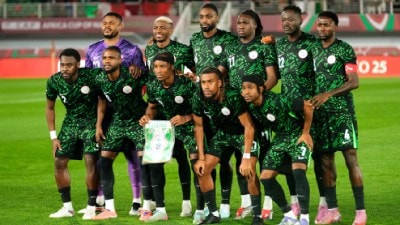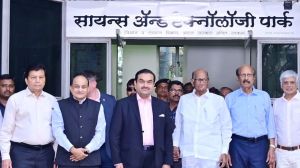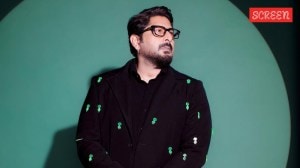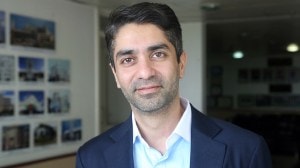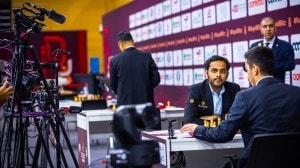Dutt8217;s Duty List
After a string of cynical, whimsical and largely disinterested career politicians, Sunil Dutt8217;s appointment as Sports Minister is like ...

After a string of cynical, whimsical and largely disinterested career politicians, Sunil Dutt8217;s appointment as Sports Minister is like a breath of fresh air. Dutt, whatever his other faults, brings with him the stamp of earnestness. He may have oversimplified things when suggesting that yoga was the solution to the drugs problem but his intentions aren8217;t in doubt. Neither, as he has shown repeatedly, is his stamina.
Those two traits may yet prove to be his biggest strength as he undertakes the biggest challenge of his political career: correcting the errors of omission and commission. Even for a habitual padayatri, a path laden with obstacles.
FORCED ERRORS
4 Problem areas created by past administrations
HOLD THE HOSTING
It8217;s been an obsession with Indian sports administrators: bid for mega international events. The Afro-Asian Games was last year, the Commonwealth Games in 2010. There is talk of bidding for the 2014 Asian Games and the Summer Olympics in 2016. Even the US 8212; with all the corporate support and world-class athletes at its disposal 8212; baulks at such heavy involvement in staging global events. Our sports administrators love it because such events mean the creation and perpetuation of massive bureaucracies, a vicious cycle Indian sport is still suffering from since the Asiad.
BUILDING BOOM
Linked to this is the fetish for building 8212; at vast expense 8212; infrastructure that rapidly falls into disuse. New Delhi8217;s Jawaharlal Nehru Stadium in the capital is the best example; built at a cost of Rs 16.1 crore in 1981 it hasn8217;t hosted a international competition of worth for 11 years. The favoured venue for rock concerts, the last time it made sporting headlines was when India8217;s medal-winning women hockey players were photographed with buckets and dirty laundry as the water ran out in the stadium hostel.
The scene is replicated all across the country, as stadia and arenas have mushroomed in the past couple of decades. Every national Games venue, for example, builds a sports complex that is used once and then allowed to rot. Think of the money that could be poured into training and development of sportsmen.
CASH, NO TANGO
India8217;s unprecedented medal haul in the last Commonwealth and Asian Games prompted then Sports Minister Uma Bharti to open the coffers for medal-winners. It was great, till the Ministry checked its pockets: the Finance Ministry8217;s allocation for incentive awards scheme was Rs 9 crore, the Commonwealth Games cash tab alone came to Rs 13 crore. This meant bounced cheques, athletes feeling cheated and bad press.
It8217;s bad for the sport, too: the cash incentives are event-based, not linked to performance. So a second-rate showing in an international event devoid of any stars can fetch easy money. The timing on the clock matters less than the colour of the medal.
DOPED AND DUPED
Doping is an evil, a bigger crime than even match-fixing8217;8217;, Uma Bharati once told this newspaper. She would rather, she said, welcome an Indian team returning empty-handed from an international meet than one with dope-tainted medals. Well, she never got her way as athletes returned home with medals and also the 8216;tested positive8217; tag the latest being weightlifter Sunaina, who tested positive during the Asian Championship in Almaty last week.
The problem stems from a lack of seriousness in dealing with the problem, as exemplified by the fact that the Sports Authority of India SAI lab in New Delhi is still not accredited. The typical official attitude to doping is cover-up; when that doesn8217;t work, as with hockey player Tejbir Singh, who confessed his guilt recently, the option is denial.
FOREVER FLAWS
4 Chronic problems that no minister has tackled
CUTTING THE RED TAPE
MORE than 70 per cent of the annual sports budget is spent on paying the employees of Sports Ministry with the SAI taking the lion8217;s share. For such a heavily staffed entity 8212; most officials seem to spend their time planning trips abroad accompanying various teams 8212; the sportsmen and women get appaling service. No wonder India8217;s top sportspersons 8212; Leander Paes, Mahesh Bhupathi, Geet Sethi, Vishwanathan Anand 8212; rarely mention the Sports Ministry in their thanksgiving speeches. Most have made it to the top thanks to either individual enterprise or parental persistence. Anju George and mentor/husband Bobby surfed the net scouting for training venues and the best coaches. She won the elusive bronze in Paris but her struggle is far from over. The bureaucracy needs to be trimmed and made accountable.
NON-PERFORMING ASSETS
Sports federations have become the personal playgrounds of political leaders in many cases, ex-leaders. The Kalmadis, Chautalas, Malhotras and Gills, who ignore basic concepts like accountability and results, need to be given the final whistle. These federations are autonomous but depend on the Sports Ministry for funds and foreign trips. Maybe the new minister can crack the whip and put a time-frame on their term in office.
Note: Cricket is the only sport which doesn8217;t depend on the government for funds 8212; no coincidence that it is the best run sport in the country.
MORALE IN A MESS
The stories keep emerging with depressing regularity: an ageing world champion lying neglected in a hospital, a star marathoner running from pillar to post for more than a decade to get the government house he8217;d been promised. International hockey stars carrying their laundry, or staying in dormitories while officials stay in 5-star hotels. In short, players being treated as virtual non-entities, almost incidental to the process. Dutt, who has a humane streak most politicians don8217;t, needs to place sportspersons back in the position of respect.
DISINVESTMENT
The Ministry needs a proper PR machine, an aggressive marketing wing. The limited sports budget means the ministry has cut the small pie strategically. Though the grants to federations are performance-based but with politicians heading these bodies doles can be managed without results to show. A corporate structure can bring accountability and transparency. The change in attitude can see corporate interest in sports other than cricket. Such has been the general impression about the federation officials that corporates these days are only interested in directly dealing with the sportspersons. So the guys with the deep pockets opt to adopt sportspersons rather than adopting a sport.
8216;I want to do something for football8217;
SUNIL DUTT is no stranger to sport, as he tells
I came from a village which meant all the games that I was attracted to were village-oriented. Kabaddi, football, horse-riding, wrestling were some of the games that I looked up to as an youngster. Since the media was not as big as it is today, every sport in the village had its own local hero. But it was wrestling that fascinated me the most. Like the pehalwans, whose physique I sought to emulate. The tel maalish and the langot became second nature8230;those were the beautiful moments of life.
It was only when I came to Bombay after partition that I was introduced to the 8216;big8217; games like cricket, tennis and golf. I had often been to the Brabourne Stadium to watch great players like Vijay Merchant and West Indies8217; Wes Hall.
I could not take up any sport because life had been a struggle. There was no time at my disposal. But I was into horse-riding, which was a childhood fascination, swimming, jogging and yoga. I indulged in these activities to basically keep myself fit. Also, I didn8217;t need a partner to play these games, which is one of the prime reasons that I am not a member of any club.
Football is another game which fascinates me the most. It is a tremendous game. I am tuned in to European football and did watch all the World Cup matches in 2002. I would like to do something for football in the country.
I was glued to the television during the India-Pakistan cricket series.
I want to encourage our countrymen to take up sport. Also, I want to lay emphasis on selecting the right people in representing the country. Look at that boy, Irfan Pathan. How he has come up from a humble background. We should be proud of such people who provide hope to other countrymen.
SOME FAVOURITES
Sachin Tendulkar: He is a very cool player. I have been watching him closely for more than 10 years. His face doesn8217;t show any tension, whatever the be the situation of the game. Above all that he has remained a simple human being.
PT Usha: She was my favourite. I remember once there was nobody to receive her after she had returned from a world meet with a rich haul. It was sad to learn that there were not many people to receive her.
As told to
- 01
- 02
- 03
- 04
- 05


